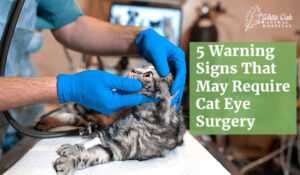
Omega 3 fatty acid supplements are popular for humans and pets alike.
Doctors recommend these supplements to treat a variety of ailments.
How do these supplements work?
Are they effective?
Understanding the ins and out of omega 3 supplements will help you choose if they are right for your pet.
Omega 3 Fatty Acid Supplements For Pets
Omega 3’s are typically sold to treat skin conditions, allergies, kidney and heart conditions, arthritis and more.
But are they right for your pet?
According to the National Institutes of Health (NIH), “a deficiency of essential fatty acids—either omega-3s or omega-6s—can cause rough, scaly skin and dermatitis.”
As such, an omega 3 supplement may benefit pets.
It can help those suffering from allergies and skin irritation related to immunodeficiencies.
But what component of omega 3s benefits your pet?
What Are The 3 Types of Omega 3s?
There are three types of omega 3 fatty acids.
They are: ALA (alpha-linolenic acid), DHA (docosahexaenoic acid), and EPA (eicosapentaenoic acid).
For example, the NIH reports that omega 3s, particularly DHA, helps form structures of cell membranes.
These, “provide energy for the body and are used to form eicosanoids.”
Eicosanoids help the body’s immune system.
ALA
ALA (alpha-linolenic acid), the most common omega 3 fatty acid, is mainly found in plants.
Foods such as flax seeds and oil, canola oil, chia and hemp seeds, walnuts and soybeans contain ALA.
EPA
Animal foods, microalgae, and fatty fish contain EPA (eicosapentaenoic acid).
EPA can convert into DHA.
Research shows EPA benefits skin hydration and oil production.
DHA
Found in animal products and algae, DHA (docosahexaenoic acid) is the most important omega 3 fatty acids.
DHA comprises the brain, eye and other parts of the body.
Fatty fish and microalgae, as well as meat, eggs, and dairy from grass-fed animals contain significant DHA.
Why Give Your Pet Omega 3 Fatty Acid Supplements For Dogs
Just like people, dogs can develop psoriasis.
In one study, taking an omega 3 supplement helped reduce symptoms of psoriasis.
Additionally, omega 3 supplements may help reduce inflammation.
Because of this, cats may experience fewer symptoms of insect, food and contact allergies.
Omega 3 fatty acid supplements for dogs also lessen dry skin and alleviate skin scaling disorders.
Pet owners giving their pups cortisone and antibiotics may be able to lower the dosage by giving omega 3 fatty acid supplements.
Why Give Your Pet Omega 3 Fatty Acid Supplements For Cats
Cats often suffer from sensitive skin.
Too much licking and scratching can leave your cat with inflamed skin.
Many pets experience a reduction in irritation after administration.
Omega 3 fatty acid supplements for cats can also improve your cat’s coat, leaving it shinier and stronger.
Adding a supplement to your cat’s diet may reduce dander and dandruff as well as improve their coat’s overall sheen.
Additionally, omega 3s may boost immune function, helping your cat fight allergies and irritation.
Seeking all-natural omega 3 fatty acid supplements for pets?
Learn more about Vet Classics Allergy Skin and Coat Soft Chews.
Vet Classics Allergy Skin and Coat Soft Chews provide a source of natural antioxidants to help support a healthy immune system and assist in combating environmental pollutants.
Learn More About Dog Allergies
Learn More About Cat Allergies
Related Posts
-
Discover The Health Benefits of Shiitake Mushroom Supplements
Shiitake mushrooms are delicious! Most Americans eat them in tasty Asian dishes, such as stir-fries.…
-
How Medicinal Mushrooms Help Boost Your Pet's Immune System
Medicinal Mushrooms Boost Dog and Cat Immunity Medicinal mushrooms have been studied and used for…
-
What Every Pet Owner Should Know About Pet Allergies
Whether human or pet, allergies usually prove to be a complicated, and sometimes frustrating, topic.…
-
How To Deal With Dog Allergies
Dealing with dog allergies isn’t as complicated as it seems. Once you and your veterinarian…









